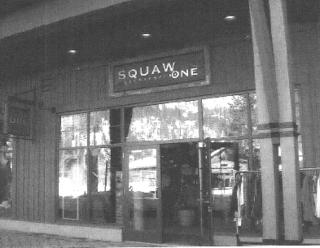TTAB Reverses Section 2(a) Disparagement Refusals of "SQUAW"
Finding that the PTO had failed to prove the marks disparaging as used with Applicant's goods and services, the Board reversed Section 2(a) refusals to register SQUAW and SQUAW ONE for clothing (class 25), skis and ski equipment (class 28), and retail sporting goods and clothing store services (class 35). In re Squaw Valley Development Co., Serial No. 76511144 (Sept. 26, 2005) [not citable].

The Examining Attorney cited dictionary definitions and Nexis articles in maintaining that the "ordinary and common meaning of the term 'SQUAW' is that of an offensive or disparaging term for an American Indian woman or wife."
Applicant owns a resort at Squaw Valley, California, the site of the 1960 Winter Olympic Games, and holds registrations for SQUAW VALLEY and SQUAW VALLEY USA for clothing and resort services, respectively. It contended that its use of the term "squaw" does not refer to "identifiable persons" but instead is a "shorthand reference" to its ski resort.
The Board relied on its decision in Harjo v. Pro-Football, Inc., 50 USPQ2d 1705 (TTAB 1999) [reversed on other grounds], in which it applied a two-part test for determining whether matter may be disparaging under Section 2(a):
- what is the likely meaning of the matter in question, taking into account not only dictionary definitions, but also the relationship of the matter to the other elements in the mark, the nature of the goods or services, and the manner in which the mark is used in the marketplace in connection with the goods or services;
- if that meaning is found to refer to identifiable persons, institutions, beliefs or national symbols, whether that meaning may be disparaging to a substantial composite of the referenced group.
As to the clothing items and the retail store services, the applications contain no restrictions as to geographic location, channels of trade, or type of clothing or sporting goods. Moreover, nothing in the specimens of use indicate "that those perceiving the marks would associate SQUAW and SQUAW ONE with the Squaw Valley ski resort." Therefore the Board concluded that in connection with these goods and services consumers would give the word "squaw" its dictionary definition rather than associate the term with Applicant's ski resort.

However, as to Applicant's ski equipment, the Board found that "the meaning of the term SQUAW ... in the context of the marketplace is applicant's Squaw Valley ski resort in California."
Disparaging?: In considering whether "squaw" is disparaging under Section 2(a), the Board looks not to the perceptions of the general public, but "whether a substantial composite of Native Americans in the United States so perceive the subject matter in question." Harjo at 1472-73.
The Examining Attorney submitted Nexis stories and statements from American Indian groups in support of her contention that Native Americans find the term "squaw" disparaging. She also pointed out that five states have banned use of the term from place names and landmarks. Applicant discounted these proofs, however, contending that the PTO failed to offer any evidence concerning "the view of the referenced group" with respect to use of the term "squaw" in connection with the goods and services identified in the application.
The Board agreed with the Applicant:
"The evidence submitted by the examining attorney does not establish whether a substantial composite of Native Americans find applicant's use of SQUAW in its marks on applicant's identified goods and services to be disparaging. The ultimate legal inquiry here is not whether Native Americans find 'squaw' a pejorative term for Native American women." [emphasis in original].
Consequently, the Board reversed the refusals to register.
TTABlog comment: Evidence of how Native Americans perceive the use of the term "squaw" in connection with Applicant's specific goods and services is not the kind of evidence that would be readily available to a PTO Examining Attorney. An inter partes proceeding, however, would be a different story. Will this case be the next Harjo?
Compare and contrast this decision with the PTO's refusal to register the mark DYKES ON BIKES. The TTABlog predicted reversal of that refusal in a posting here.
Text Copyright John L. Welch 2005.




0 Comments:
Post a Comment
<< Home